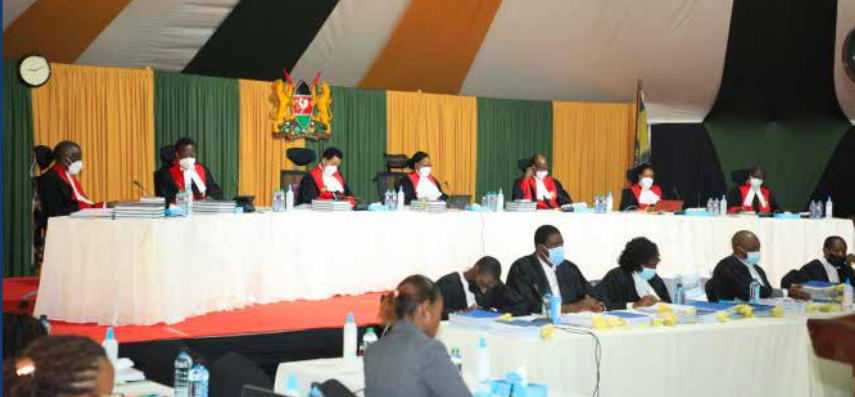At a glance – Issues before the Supreme Court for determination

Outcome 1 – Presidential election upheld
If the Supreme Court issues a ruling that declares the presidential election as valid, the President-elect will be sworn in on the first Tuesday, 7 days from when the court issues its ruling – September 13, 2022.
Outcome 2 – Presidential election nullified
The court set out 9 issues for the determination of the presidential election petition. We look at the possible outcomes if the court nullifies the election based on 2 key issues.
- Whether tech deployed by IEBC for the 2022 election met the standards of integrity, verifiability, security and transparency to guarantee accurate and verifiable results.
The technology deployed in the August 9 election has come under sharp scrutiny in the presidential election petition at the Supreme Court. IT is clearly a weighty issue in this case. From JPEG to CSV format, Kenyans have been exposed to a raft of tech jargon during the proceedings..
One of the key claims presented by advocates representing the petitioners involved the hacking and interference of results forms in the IEBC portal in favour of DP William Ruto.
If the Supreme Court is to declare the election invalid and make a finding that the technology used did not meet the required standards, a scenario where there are conflicting timelines is likely to arise;
- Timeline for procuring election technology – The IEBC is required by law to procure and implement the technology necessary for the conduct of a General Election at least 120 days before elections; and test, verify and deploy such technology at least 60 days before a General Election.
- Timeline for a fresh election – The Constitution requires a fresh election to be held within 60 days following the court’s ruling.
- Whether the IEBC carried out the verification, tallying and declaration of results in accordance with 138(3)(c) and 138(10) of the COK
The court finds that IEBC failed to conduct the presidential election as provided for in law and that as currently constituted, it is unable to conduct a free, fair, credible and verifiable presidential election.
Such a finding may necessitate the appointment of new IEBC commissioners. The law provides for the President to nominate and Parliament to vet the nominees. The President thereafter appoints the approved nominees as commissioners of IEBC.
Two challenges are likely to arise from the above. First, the timeline to nominate and appoint may fall outside the 60-day timeline for conducting a fresh election. Two, the incumbent President enjoys limited powers and is barred from nominating or appointing public officers.

